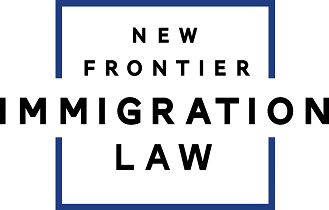
You may want to know what an RFE is, particularly if you’re undergoing an immigration process. A Request for Evidence (RFE) is a formal request you may get when your immigration application lacks sufficient evidence to make a decision. This request asks the applicant to provide additional documents or clarify information submitted in their original application.
RFEs are common in cases like green card applications, family-based visas, and other immigration benefit requests. Responding to an RFE with convincing evidence and proper documentation is essential to avoid denial or delays in your immigration process. Consulting with an experienced Phoenix immigration lawyer can help ensure a complete and timely response.
Understanding Requests for Evidence (RFE)
A Request for Evidence (RFE) is a notice issued by U.S. Citizenship and Immigration Services (USCIS) when additional information or documents are needed to make a final decision on an immigration application. You can get an RFE for many reasons. However, that only means that the initial submission was incomplete or lacked sufficient evidence to support eligibility.
Here’s what you should know about RFEs:
- Purpose: RFEs request specific documentation or evidence that was missing or insufficient in the original submission, such as birth certificates, proof of marriage, or bank statements.
- Common reasons: Incomplete or missing documents, insufficient proof of eligibility, contradictions in the provided information, or failure to meet eligibility requirements.
- Types of applications: RFEs are common in various immigration processes, such as green card applications, family-based visas, and adjustment of status requests.
The RFE notice will outline the specific documentation required and provide instructions for submitting a complete response within the designated time frame. It’s important to respond to an RFE fully and on time, as a partial response or failure to meet deadlines can lead to denial.
In some cases, the RFE may also request secondary evidence or alternative documents if primary evidence, such as birth certificates or marriage records, is unavailable. Providing credible evidence that supports your eligibility for the immigration benefit is critical.
For a free case review with an Immigration lawyer, call
Why Am I Getting an RFE?
It is natural to feel afraid when you know there are many reasons why your application can be denied. However, it is important to remember that receiving a Request for Evidence (RFE) does NOT mean your application has been denied. RFEs are issued when USCIS needs more information or additional documentation to determine your eligibility for an immigration benefit, such as a green card or visa.
Common reasons you may receive an RFE include:
- Insufficient evidence: If the initial evidence submitted with your application does not meet USCIS’s standards, they may request additional documents to clarify your eligibility.
- Missing documents: Sometimes, required documentation, like a birth certificate or marriage record, may have been overlooked or not included in the original submission. USCIS will ask for these documents to proceed with the review.
- Contradictory statements: If the information provided in your application conflicts with other records or statements, an RFE may be issued to resolve the discrepancies.
- Outdated or incorrect forms: If the wrong version of a form or incorrect documentation is submitted, USCIS may request updated or correct information.
An RFE will clearly outline the specific evidence or documents required, and it’s important to follow the instructions closely. You may be asked to provide primary evidence, such as a birth certificate or alternative documents if primary records are unavailable. Ensuring that you respond with sufficient proof within the designated time frame is vital for a favorable decision on your application.
An experienced immigration attorney can help review the RFE, organize your response, and ensure you provide the relevant evidence USCIS is looking for. This helps avoid further delays or possible denial.
What to Do After Getting an RFE Notification?
When you receive an RFE, it is important to review the notice carefully and follow all instructions provided. Here are key steps to take:
- Review the list of required evidence: The RFE will include a detailed list of documents needed to complete your case. Gather all necessary documentation.
- Submit convincing evidence: Provide proof that supports your eligibility, including alternative documents if primary evidence is unavailable.
- Check for response deadlines: USCIS sets a strict time frame for responding to an RFE. Ensure your response package, including all required documents, is mailed by the deadline.
- Include translations: If any of your documents are in a foreign language, include English language translations with your response.
- Submit a complete response: Avoid submitting a partial response. Be sure to address all the issues raised in the RFE and provide all requested documents.
Failure to respond by the deadline or providing insufficient evidence can lead to a denial of your immigration application.
Our immigration lawyers
How Can an Immigration Lawyer Help?
When you receive a Request for Evidence (RFE) or face challenges with your immigration case, working with an experienced immigration lawyer can significantly improve your chances of success. An immigration lawyer can help ensure that your application is thoroughly prepared and that all required documents are submitted correctly.
Here’s how an immigration attorney can assist:
- Review your RFE: An attorney will carefully review the RFE to understand what evidence is required, such as birth certificates, bank statements, or other documentation relevant to your case.
- Organize your response: Immigration lawyers are familiar with USCIS requirements and can help you submit a complete response, avoiding filing deficiencies or missing information that could lead to further delays or a denial.
- Ensure compliance with deadlines: RFEs have strict time frames for response. Your attorney will help ensure that all documents and responses are submitted within the required period to avoid negative outcomes.
- Provide guidance on eligibility: Our attorney will also help assess whether you meet eligibility requirements for the immigration benefit you’re applying for, such as a green card or adjustment of status.
- Help with documentation: In cases where primary documents, like a birth certificate, are unavailable, an immigration lawyer can help you gather alternative evidence to satisfy USCIS requirements.
An attorney’s expertise can help you avoid unnecessary delays, additional requests for evidence, or a negative decision on your application. If USCIS issues a Notice of Intent to Deny (NOID) or an RFE, having a qualified immigration lawyer on your side can make a significant difference in the outcome of your case.
Complete a
Free Case Evaluation
Form now
An Immigration Lawyer Can Answer All Your Questions About Your RFE
Dealing with an RFE can be stressful, especially when you are uncertain about what additional documents or evidence are required. An immigration lawyer at New Frontier can guide you through the process and ensure that your response is both timely and complete.
We can also help you understand the eligibility requirements, review your submission, and increase your chances of a favorable decision on your application. By working with an experienced immigration attorney, you can feel confident that your RFE will be handled properly, giving you the best possible chance of success.






